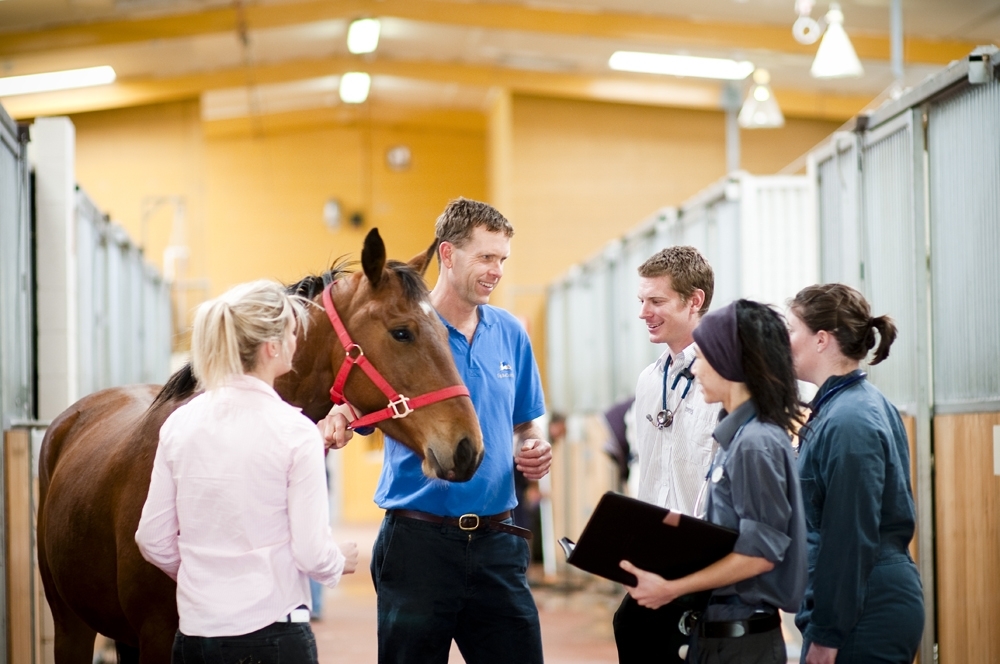
Melbourne veterinary school announces redevelopment plans
New Melbourne Veterinary School students beginning in 2019 will be pleased to hear of the upcoming redevelopment plans for the Faculty of Veterinary and Agricultural Sciences, the Faculty of Medicine, Dentistry and Health Science and the Faculty of Science—that means brand new, purpose-built facilities!
New development in Werribee

The University of Melbourne has recently announced that it will be redeveloping its Werribee campus to create a state-of-the-art facility for clients, students, staff and wider community. The planned new five-storey learning and teaching building will improve the delivery of the university’s world-class veterinary education, and will house cutting-edge equipment and purpose-built spaces, including sitting areas open to the public and a new café.
Part of the redevelopment also includes the upgrade to the U-Vet Animal Hospital, which provides world-class treatments for pets as well as the best possible hands-on clinical experience for veterinary students.
Along with new landscaped gardens with improved pedestrian access and an upgraded parking area, there will also be a new emergency section with separate waiting areas for different species and additional consultation rooms.
Throughout the construction, U-Vet will continue to operate 24-hours and provide the same high-quality medical care for animals. Learning, teaching and research activities will also continue. Any changes will be clearly signed and alternative parking will be provided.
The Werribee Redevelopment has been designed in consultation with veterinarians with expertise in animal behaviour. The project aligns with the aspirations of the University of Melbourne and the Victorian Planning Authority and Wyndham City Council.
Western Edge Biosciences project
In tandem with the Werribee project, the Western Edge Biosciences Stage 1 project will, for the first time, bring together the Faculty of Veterinary and Agricultural Science, Faculty of Medicine, Dentistry and Health Sciences, and the Faculty of Science into one cohesive precinct.

(Image: University of Melbourne)
This world-class building will provide an active and flexible learning environment that has been designed specifically to suit the biosciences. Housing purpose-built wet and dry teaching labs, and various formal and informal learning spaces, the building allows for several classes to run simultaneously within the same area.
The corner of Tin Alley and Royal Parade will be revitalised by the new precinct for future bio scientists, vets and doctors. The precinct has been architecturally designed to reflect the theme of biosciences throughout.
With a rich façade and a welcoming natured-based design, the design aims to blend the interior and exterior spaces. The impressive landscape design references the university’s historical System Garden, which will be visible from the informal areas inside.
The WEBS Parkville program has been undertaken in close collaboration with the Faculty of Veterinary and Agricultural Sciences, the Faculty of Medicine, Dentistry and Health Science and the Faculty of Science, including user groups with representatives from each faculty.
Both projects are expected to be completed and ready for teaching in Semester 1, 2019.
Are you interested in studying veterinary medicine at the University of Melbourne?
The University of Melbourne’s four-year, graduate-entry Doctor of Veterinary Medicine degree offers veterinary students the best possible preparation for twenty-first-century careers in a rapidly changing and increasingly global workforce. Students can expect to learn the latest theory and practice, with plenty of practical hands-on experience, taught by a team of leading veterinarians.
Program: Doctor of Veterinary Medicine (DVM)
Location: Melbourne, Victoria
Semester intake: Late February/early March
Duration: 4 years
Application deadline: Candidates are encouraged to submit their applications as soon as possible.
Entry Requirements
Eligible Melbourne DVM applicants must
- have completed an undergraduate science degree (minimum three-year degree); and
- have completed prerequisite subjects including at least one semester of study in each of cell biology or general biology, and biochemistry.
- submit a personal statement (i.e., description of their interest in veterinary science and related experiences with animals).
Acceptable undergraduate science degrees at Canadian universities include science degrees with majors in agriculture, animal science, biochemistry, biomedicine, physiology or zoology. Selection into the program will be primarily based on academic achievement. Selection will be based on results (grades) obtained in your final year undergraduate science subjects as well as your second last year (penultimate) undergraduate science subjects, weighted 75:25 toward the final year subjects. Applicants with a 75% average and above should apply.
Apply to Melbourne Veterinary School!
*



































Ask A Question
Ask us about your program of interest, or if you have a question about our services.
CONTACT US TODAY